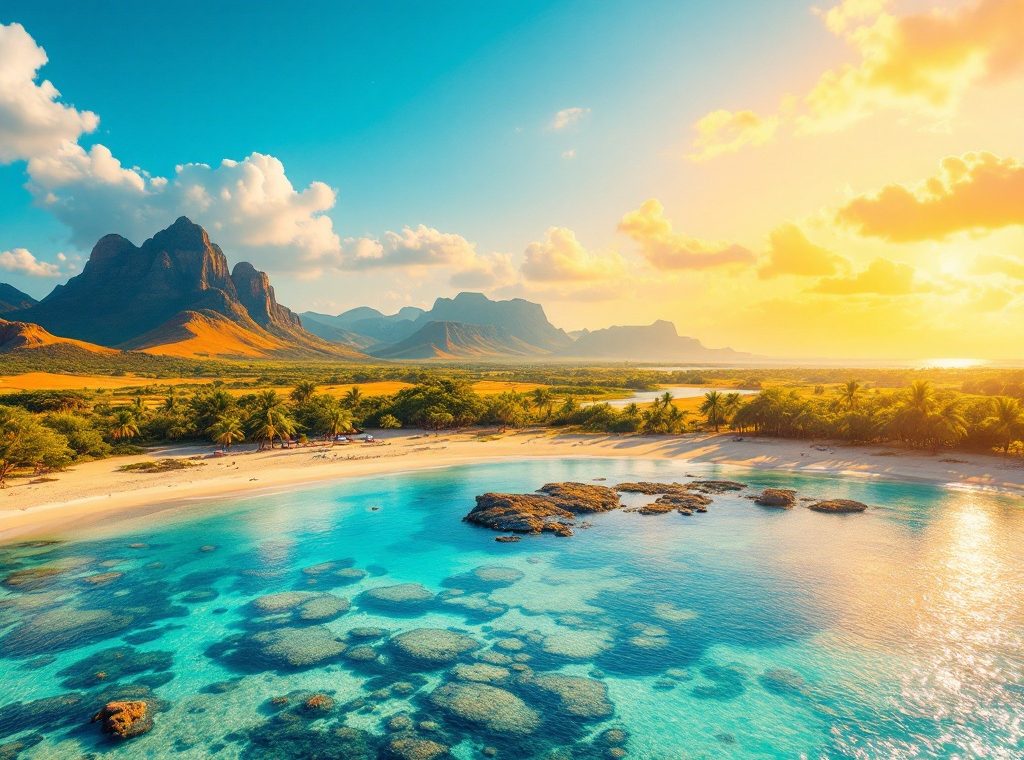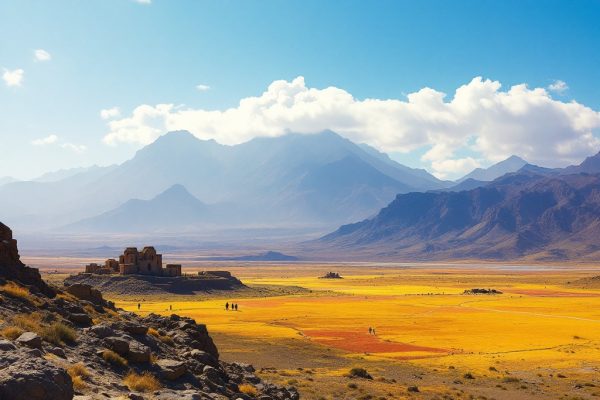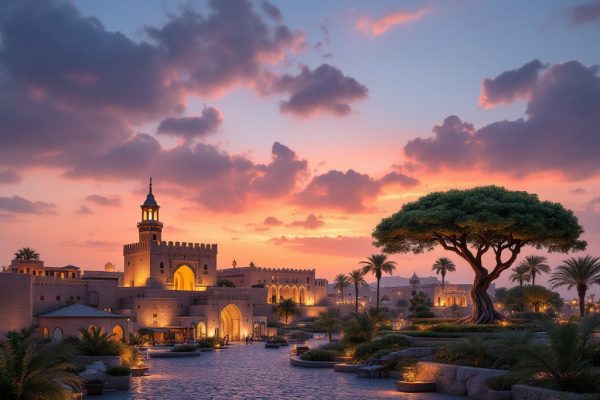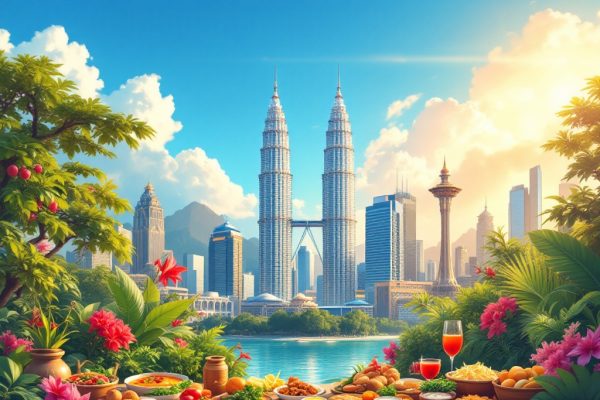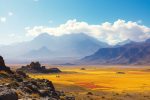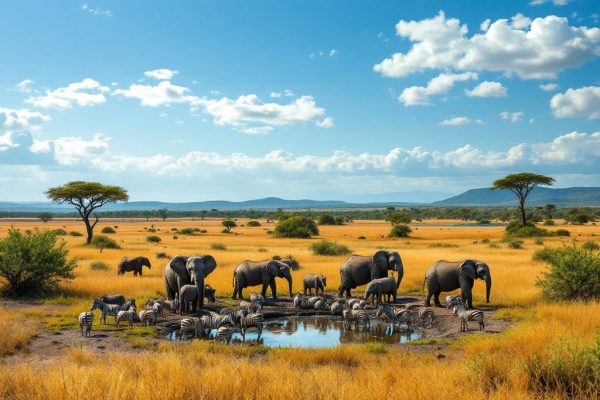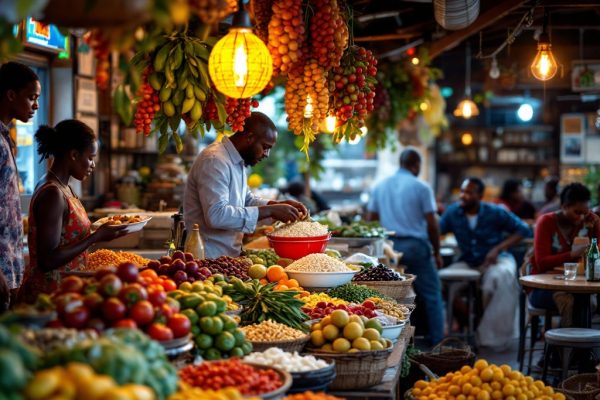Discover the Safest Countries to Travel in Africa
Dreaming of a thrilling African adventure without compromising safety? Discover the magic of Mauritius, Botswana, and Namibia, havens of tranquility where breathtaking landscapes meet remarkable wildlife. Explore pristine beaches, vibrant coral reefs, and vast deserts, all while enjoying peace of mind thanks to low crime rates and welcoming communities. Learn how political stability and effective governance contribute to a secure travel experience, empowering you to embrace the wonders of Africa with confidence. Unveil the secrets to safe travels with expert tips and embark on your dream African journey today!
Important information
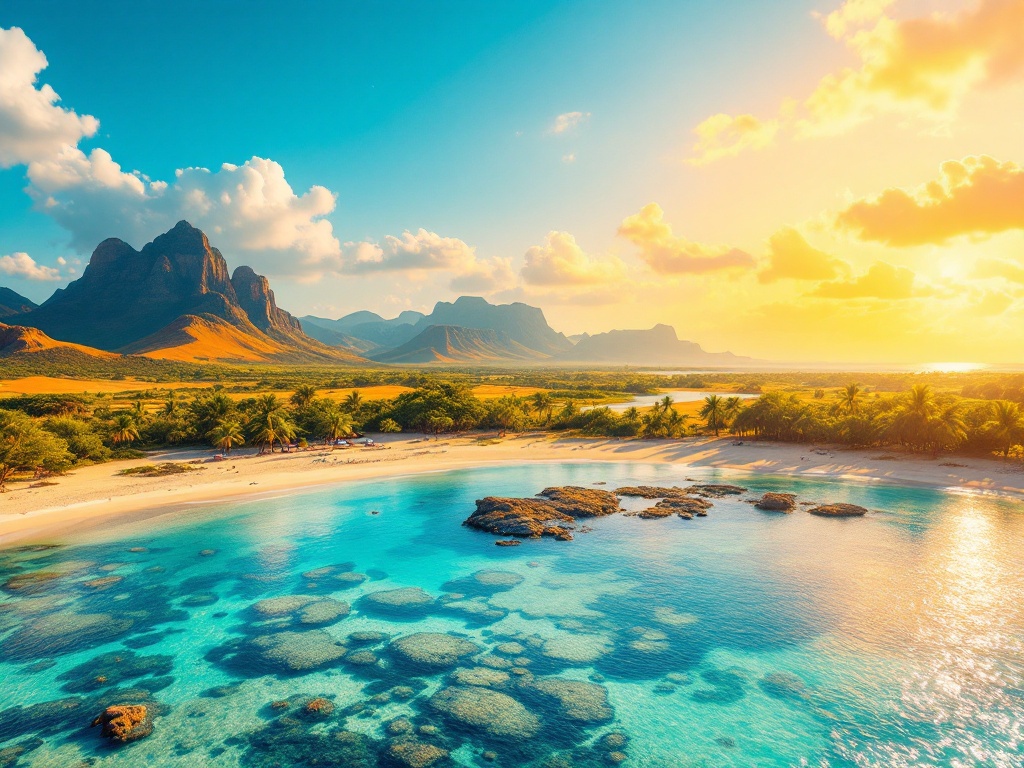
- Mauritius, Botswana, and Namibia are considered some of the safest countries in Africa for travelers, with low crime rates and welcoming locals.
- The Global Peace Index (GPI) ranks countries based on safety, conflict, and militarization, with Mauritius often ranking as the safest in Africa.
- Political stability and effective governance contribute to safer environments for tourists, allowing for investment in infrastructure and security.
- Before traveling to Africa, research your destination, check travel advisories, and be aware of local customs and laws.
- Prioritize safety by using reputable transportation, securing your accommodations, and carrying emergency contact information.
Discover the Safest Countries to Travel in Africa
Looking for a thrilling yet safe African adventure? Consider Mauritius, Botswana, or Namibia. These destinations offer low crime rates and welcoming locals, combining stunning landscapes with incredible wildlife encounters. They are perfect for adventurous travelers who prioritize safety.
Mauritius
Known for its pristine beaches, crystal-clear waters, and luxurious resorts, Mauritius offers a relaxing and safe environment. Explore the vibrant coral reefs, hike through lush rainforests, or simply unwind on the sandy shores, enjoying peace of mind throughout your stay.
Botswana
Botswana is renowned for its exceptional wildlife viewing opportunities in the Okavango Delta and Chobe National Park. Witness diverse animal populations in their natural habitat, embark on thrilling safaris, and experience the untamed beauty of Africa with a sense of security.
Namibia
Namibia’s otherworldly landscapes, from the towering dunes of Sossusvlei to the dramatic Etosha Pan, offer a unique and safe adventure. Explore vast deserts, discover ancient rock art, and encounter fascinating wildlife in this captivating country.
Safety Precautions for Your Trip
Research local customs and traditions. Respecting local norms enhances your experience and promotes positive interactions with residents.
Check travel advisories and stay updated on any safety concerns or recommendations issued by your government. Being informed empowers you to make responsible decisions.
Avoid displaying expensive jewelry, electronics, or large amounts of cash. Discretion minimizes the risk of attracting unwanted attention.
Utilize reputable transportation services and avoid walking alone at night, especially in unfamiliar areas. Prioritizing safe transportation options enhances your security.
Be mindful of your surroundings and trust your instincts. If a situation feels unsafe, remove yourself from it promptly. Your safety is paramount.
What Are the Safest Countries in Africa?
Looking for a safe and secure African adventure? Consider these countries: Mauritius, Botswana, Namibia, Rwanda, Seychelles, Zambia, or Ghana. These destinations are known for their political stability and low crime rates, ensuring a worry-free travel experience. Mauritius, in particular, consistently receives high marks for safety and is often ranked as one of the safest countries in Africa.
Mauritius: The Safest Country in Africa
Mauritius is remarkably safe, earning its rank as Africa’s safest country by the Global Peace Index (GPI). Its exceptionally low crime rate attracts thousands of tourists annually, seeking relaxation and adventure on the island’s stunning beaches and lagoons.
Botswana: A Leader in Safety and Safari Experiences
Botswana, renowned as the second safest country in Africa, offers incredible safari adventures. Its political stability and low crime rates, coupled with a well-developed tourism infrastructure, contribute to this reputation. The nation’s emphasis on both conservation and tourism further ensures visitor safety, enhanced by the friendly and hospitable locals.
Namibia: Peaceful, Politically Stable, and Tourist-Friendly
Namibia, a safe and stable haven for travelers, boasts a tranquil political scene and a government dedicated to visitor security. Low crime rates, particularly in tourist areas, make it a prime destination. Beyond safety, the allure of the vast Namib Desert and thrilling experiences such as safaris and unique desert tours draw adventurers. Visitors can also explore the country’s diverse landscapes, adding to Namibia’s captivating charm. Discover the magic of Namibia, where safety and adventure intertwine.
Rwanda: Low Crime Rates and Stable Political Environment
Rwanda is known for its remarkably low crime rates and stable political environment, creating a positive travel experience. The country prioritizes safety and security for both citizens and tourists, making it a secure and welcoming destination in Africa.
Seychelles: Low Crime and Stable Government
The Seychelles offers a secure and welcoming environment for tourists thanks to its stable political climate and low crime rate. This makes it an ideal destination for travelers seeking relaxation and enjoyment.
Zambia: Safe and a Prime Safari Destination
Zambia is a safe and popular tourist destination, particularly for those seeking incredible safari adventures. Crime against visitors is rare, allowing you to focus on the diverse wildlife and stunning photographic opportunities. Capture breathtaking images of animals thriving in their natural habitat.
Ghana: Friendly and Safe for Tourists
Ghana’s welcoming people and low crime rate make it a safe and popular tourist destination in Africa.
How Is Safety Measured in African Countries?
African safety is a complex issue best evaluated through multiple indicators. The Global Peace Index (GPI) ranks countries based on societal safety, domestic and international conflicts, and militarization levels. Crime, including violent crimes (e.g., assault, homicide) and property crimes (e.g., theft, burglary), is a significant factor. Political stability and effective governance are crucial for maintaining order, and political instability can increase crime rates. Organizations like the World Bank and the UN Office on Drugs and Crime provide data on these indicators, offering insights into safety and security across Africa. A comprehensive understanding requires analyzing all these factors together.
Understanding the Global Peace Index
The Global Peace Index (GPI) ranks 163 independent states and territories according to their peacefulness. Using 23 qualitative and quantitative indicators from respected sources, the GPI examines Societal Safety and Security, Ongoing Domestic and International Conflict, and Militarization. Produced by the Institute for Economics and Peace (IEP), an independent, non-profit think tank, the GPI promotes peace as a positive, achievable measure of well-being and a tangible sign of global progress.
Analyzing Crime Rates and Societal Safety
Crime rates are crucial indicators of societal safety. Lower crime translates to safer communities for everyone, including residents and tourists. The Global Peace Index, which ranks countries based on safety, conflict, and militarization, reflects this connection. Several African nations consistently achieve high rankings due to their low crime rates and stable political environments. These include:
- Mauritius,
- Botswana,
- Rwanda.
This fosters a stronger sense of security and boosts tourism, as these countries become attractive destinations for visitors seeking peace of mind. However, many other African nations grapple with crime and instability, impacting their index ranking and tourism industries. Safety is paramount for both residents and visitors.
The Role of Political Stability and Government Policies
Political stability creates safer communities by reducing crime and social unrest. Stable governments can invest in essential areas such as infrastructure, social services, and law enforcement.
This investment creates a predictable and secure environment, allowing tourists to relax and enjoy their travels. A stable political climate cultivates a more welcoming and secure destination.
Travel Safety Tips for Africa
Before you travel, research your destination thoroughly, including local customs, laws, and safety concerns. Stay informed about travel advisories for crucial updates.
Enhance your safety by avoiding displays of valuables such as expensive jewelry or electronics, and keep large sums of cash hidden. Use reputable transportation options like registered taxis or rideshares, and avoid unmarked vehicles. If renting a car, choose a reliable company and ensure the vehicle is in good condition.
Be mindful of your surroundings, especially in crowds or at night. Avoid walking alone in isolated areas and stick to well-lit and populated places after dark.
Choose secure accommodations with features like locks, safes, and 24-hour reception. Share your itinerary with family or friends back home.
Learning basic local phrases can aid communication and demonstrates respect. Respect local customs, including modest dress and mindfulness of traditions, to prevent unintentional offense.
Carry a copy of your passport separate from the original. Keep emergency contacts readily available, both in your phone and a physical copy. Include your embassy, local authorities, and family contact information.
Travel insurance is advisable, covering medical emergencies, lost luggage, and other unforeseen issues. Consult your doctor about necessary vaccinations and precautions. Pack a basic first-aid kit with essentials like bandages, antiseptic wipes, pain relievers, and any personal medications.
Exercise caution with food and water by opting for bottled water and being selective about street food. Maintain reliable communication with family and friends using a local SIM card or international roaming.
Addressing Safety Concerns for Female Travelers
Research your destination thoroughly before you go, familiarizing yourself with local customs and dressing respectfully.
Choose safe and reputable accommodations.
Avoid walking alone at night, especially in unfamiliar areas. Stick to well-lit streets and utilize reliable transportation like registered taxis or ride-sharing apps.
Stay alert and trust your instincts – if a situation feels unsafe, remove yourself.
Consider joining group tours, especially when exploring remote locations.
Always share your itinerary with a trusted contact back home and check in regularly.
Learn basic local phrases, especially those related to asking for help.
Carry a personal safety alarm or a whistle.
Be cautious about who you engage with and avoid sharing personal information with strangers.
Protect your valuables by leaving expensive jewelry and electronics at home and be wary of common tourist scams.
Travel Advisories and Precautions
Planning a trip to Africa? Start by reviewing your government’s travel advisories for essential safety and security information. While exploring, stay alert and protect your belongings. Show respect for local customs and traditions. Before you depart, ensure you’re up-to-date on necessary vaccinations and familiarize yourself with local laws. Keep emergency contact information readily available and obtain comprehensive travel insurance for added peace of mind. Here’s a step-by-step guide to help you prepare:
Review travel advisories. Check your government’s official travel advisories for up-to-date safety and security information about your destination.
Stay vigilant. Be aware of your surroundings and take precautions to protect your belongings from theft or loss.
Respect local customs. Show respect for the local culture by adhering to customs and traditions.
Get vaccinated. Ensure all necessary vaccinations are up-to-date before your departure.
Know the laws. Familiarize yourself with the local laws and regulations of your destination.
Emergency contacts. Keep emergency contact information readily accessible.
Travel insurance. Obtain comprehensive travel insurance for peace of mind and protection against unforeseen circumstances.
Public Security and Tourist Safety
Effective law enforcement and government policies are crucial for tourist safety. Understanding local security measures and following safety guidelines further protect visitors. For example, Mauritius prioritizes tourist safety with robust policing and tourism management, resulting in low crime rates and a secure environment.

